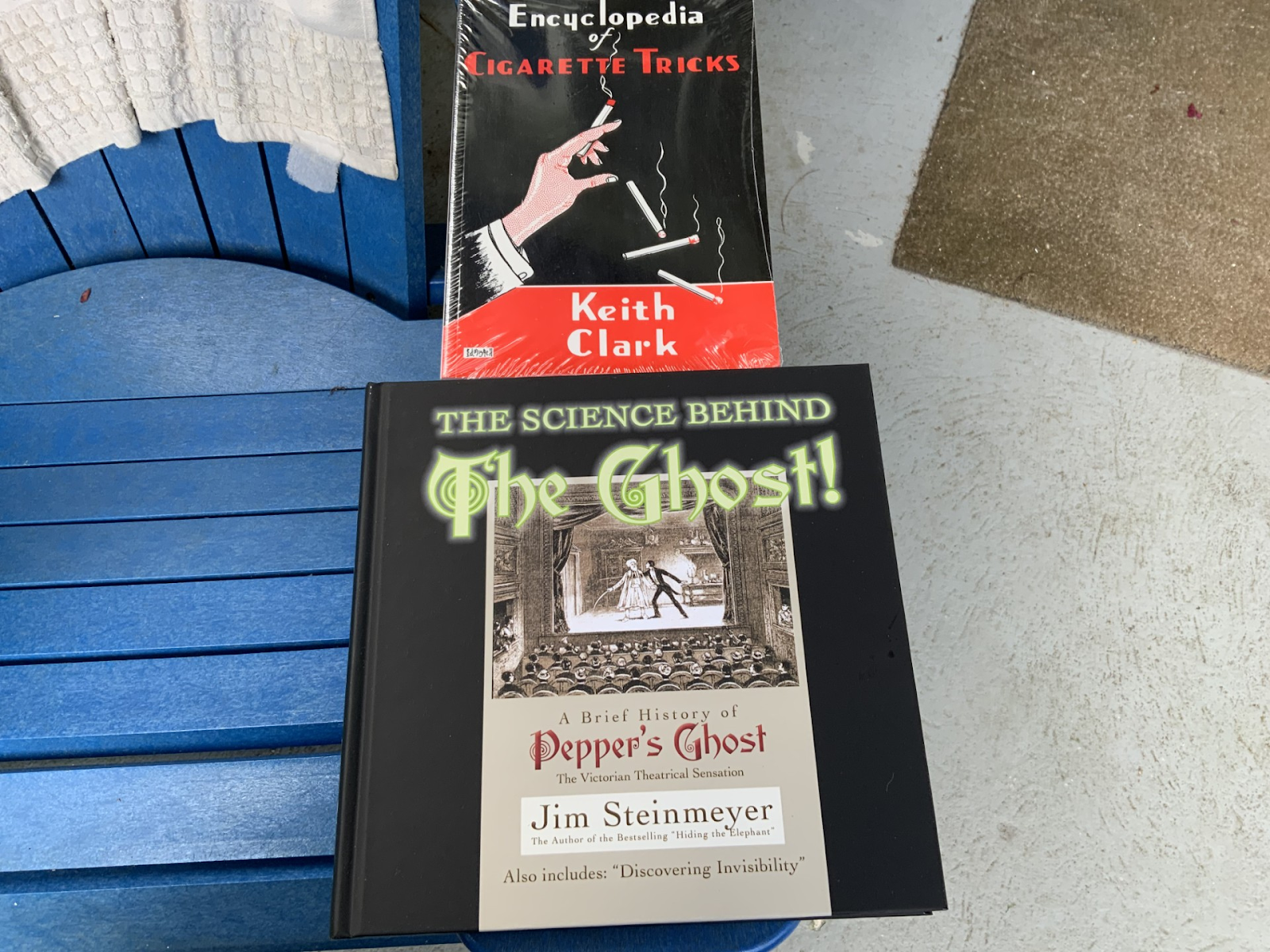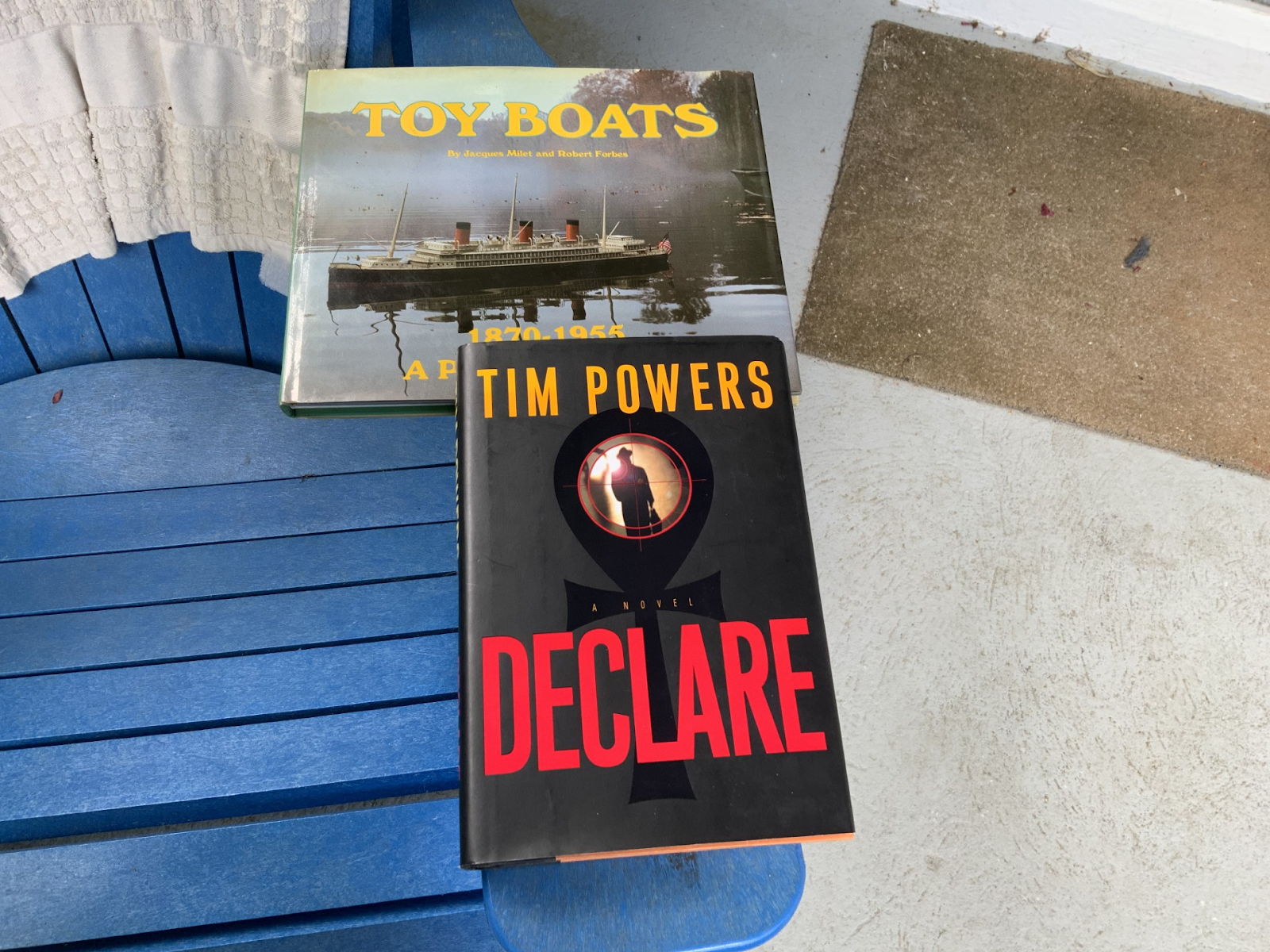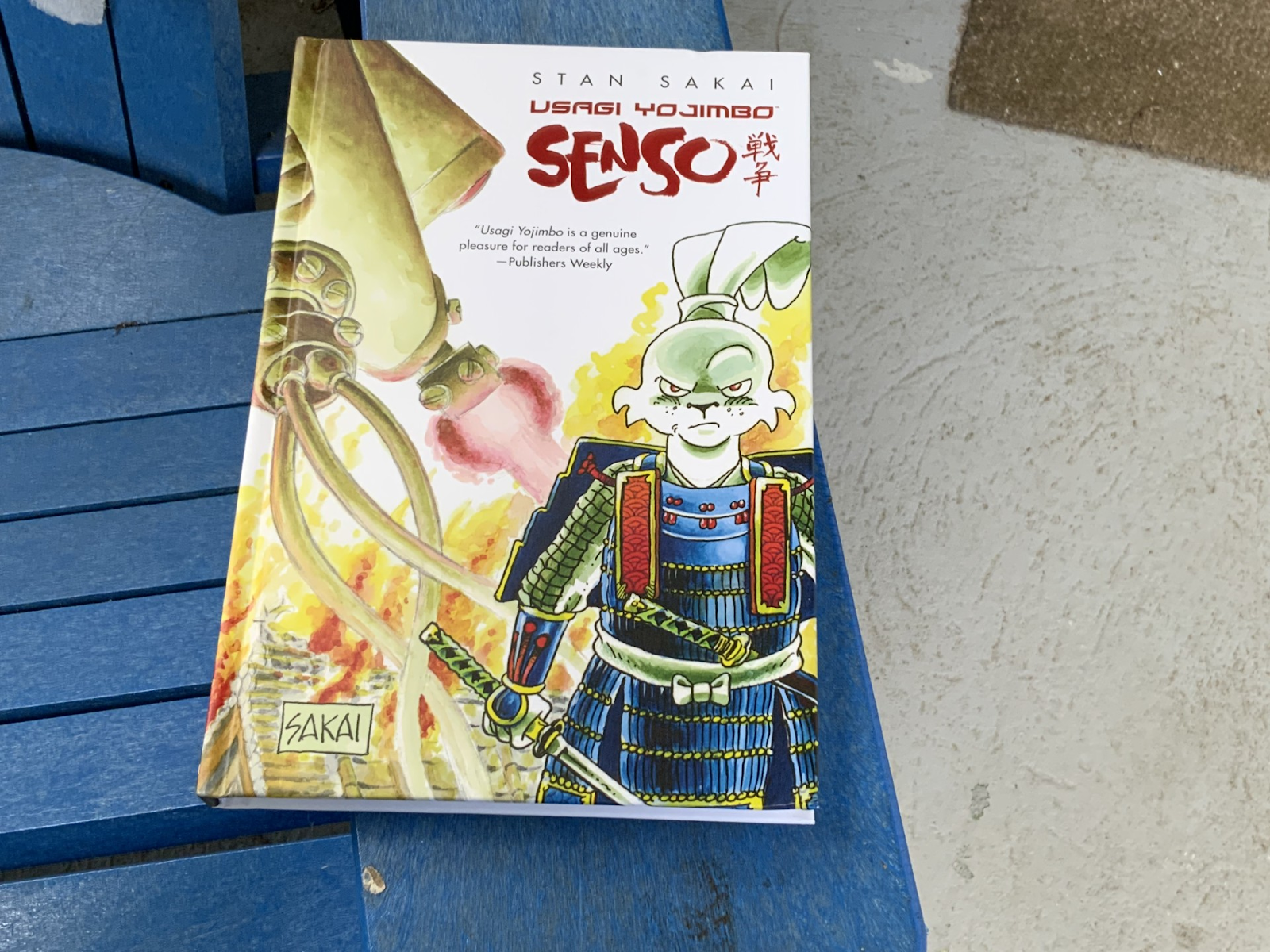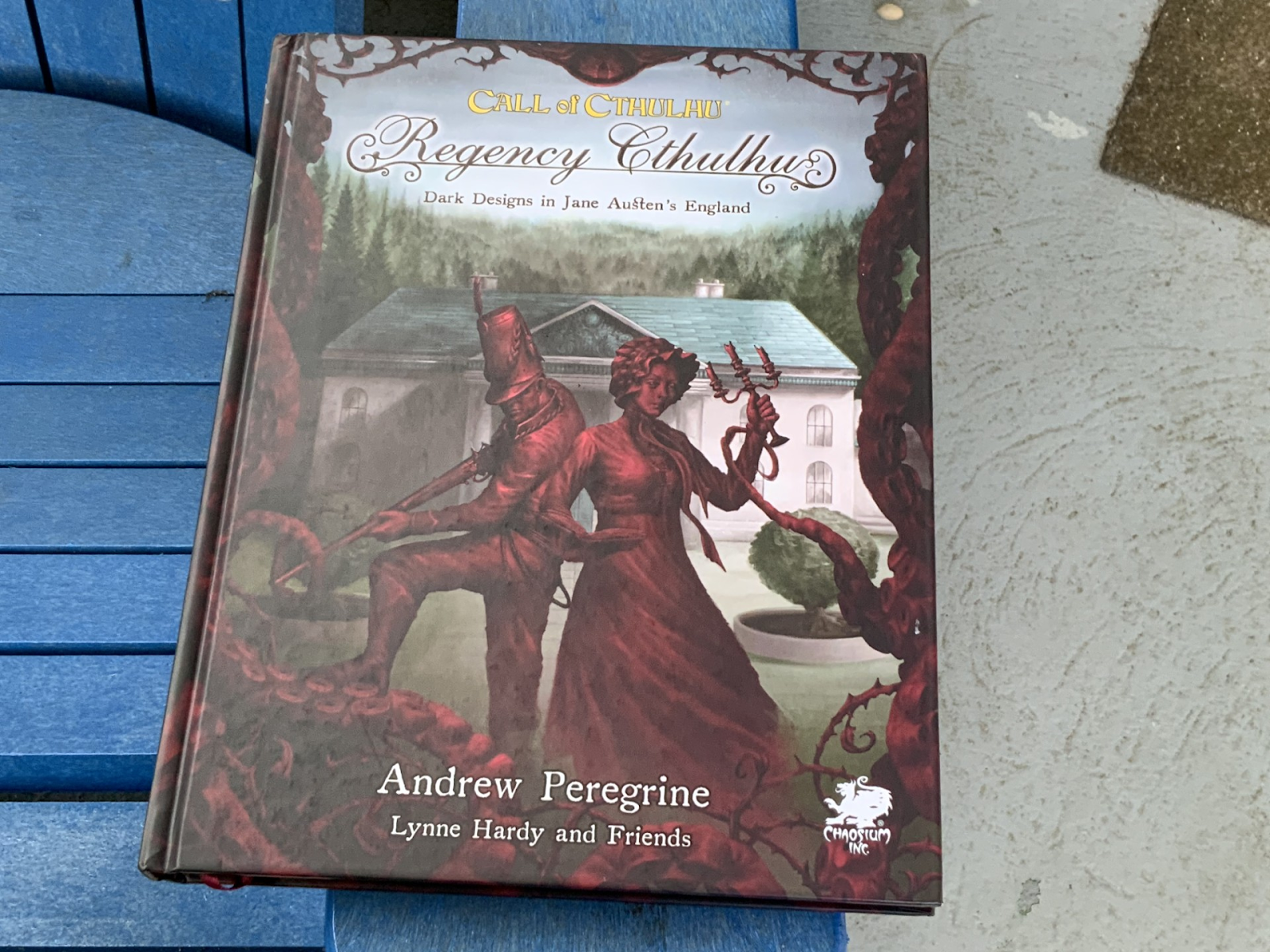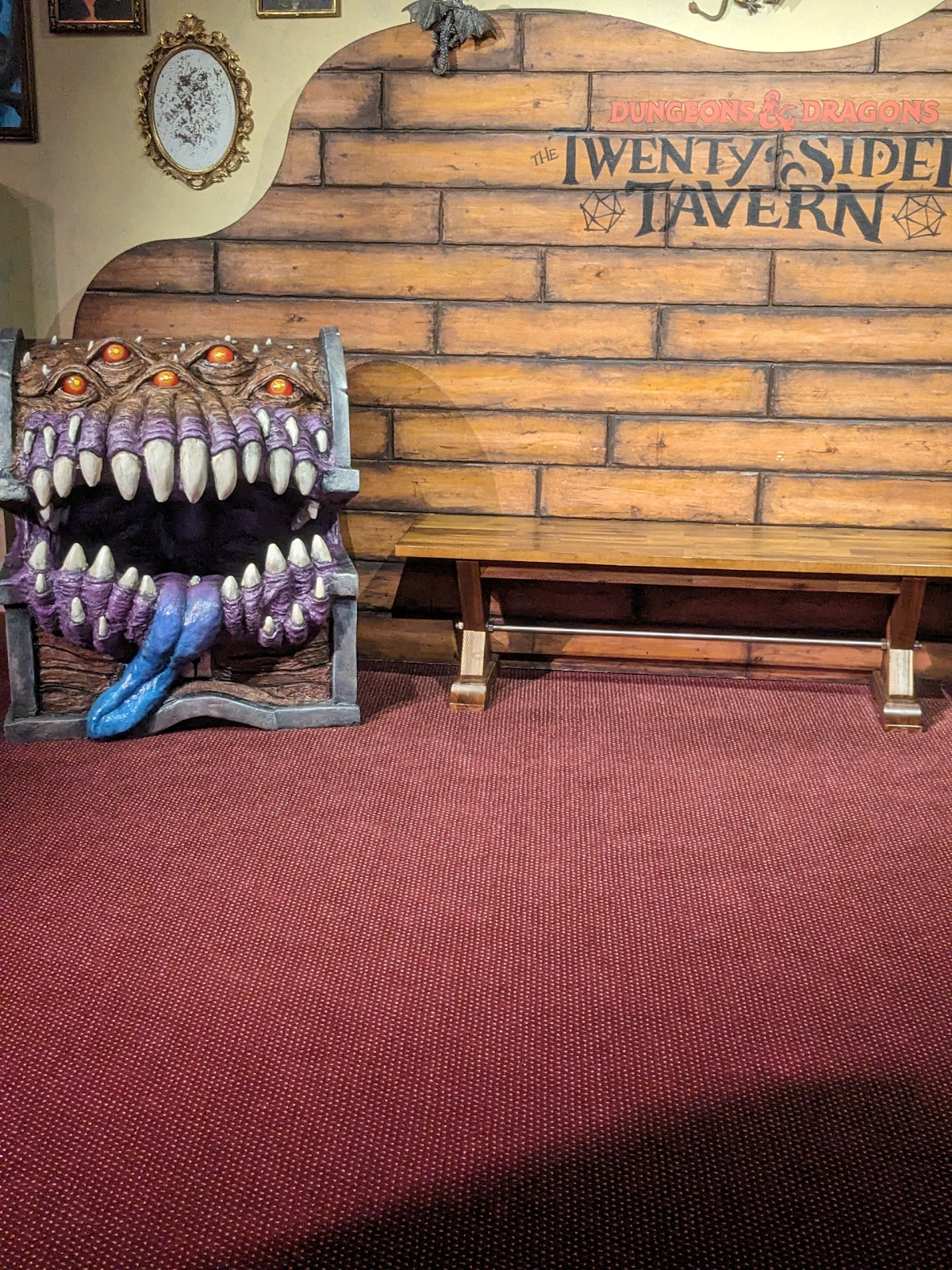Proactive Roleplaying: Guidelines and Strategies for Running PC-Driven Narratives in 5E Adventures by Jonah and Tristen Fishel, Media Lab Books 2023
I mentioned this a short while back and I finally got my hands on a copy.
Short version: It’s a breezy read and I’d recommend it to anyone starting their RPG journey.
Long version: Well …
This is a first effort and a fine one from the Fishels. You can sense their enthusiasm. It’s spilling off the page. They do make some egregious clangers but I’d chalk that up to inexperience and, if this first effort is anything to go by, I expect future efforts to be much better.
I could have lived without the constant pop culture references. If you mention, say, Dune, to me, I no longer know whether you mean the books by Frank Herbert, the ones by Brian Herbert and Kevin J. Anderson, the 1984 film, the 2021 film, the 2024 film, the various different television series, the graphic novels ... Particularly these days when there are more streaming services than fleas on a fat dog’s arse, and other creators line up around the block to create fiction in a dead writer’s style, I do not pretend to keep up with all the pop culture all the time. Nobody human could.
Those who try come away … changed. By their strangeness ye shall know them.
That said, I think this is a brilliant book for anyone new to the hobby trying to run a D&D game. Its advice is commonsense. The base idea is that, as DM, you should make your 5E game more player-facing by allowing them to pick their own path through the narrative.
Some of you may feel a slight twitch at this point; a certain spasm in the spinal column.
That’s because this is exactly the same argument that Trail of Cthulhu had with Call, sixteen years ago. The argument that led to Trail taking dice out of the equation, allowing the players to pick the direction of the game by allowing them to piece together the threads of the narrative without resorting to dice rolls. Dice rolls when failure is interesting? Absolutely. Dice rolls when dice become gatekeepers preventing players from accessing story? No thank you.
Later this became systems in which the players were allowed to pick the direction of the campaign, not just the game. The big two are Dracula Dossier and Armitage Files, but truthfully it applies to pretty much any GUMSHOE product. The base argument there is exactly the same as the base argument here. Give players some control over the narrative and you strengthen the narrative.
The big difference being, this time, we’re talking about 5E D&D. Dungeons and Dragons gave birth to the RPG genre but it also gave birth to the DM-driven narrative. The linear path, carefully scripted by one person. It drives a lot of DMs down that same road, even now.
With dice. Lots and lots of dice. And charts. God. O Lord. The charts. I see the Fishels still love ‘em some charty goodness. Best of luck to them. Some people’s creative style differ from mine. I found myself wishing for the bare simplicity of GUMSHOE towards the end of the book’s example scenario section. It was beginning to feel like eating an entire cheesecake in one sitting. The first slice? Goes down easy. Second slice? Mmm. Slice eight? O God …
It does feel at times as if D&D folks drag the mechanics of the game along with them like damned souls hauling chains and weights from now until salvation. As if they don't see the chains as chains, somehow. jhj
Honestly, I’d like to see more DMs make player-facing games. Particularly player-facing D&D games, which often tend to be anything but. I think it can only add to the hobby. This is one of those times when you can see the authors taking their first steps down that path and I wish them well.
If you’re looking for a birthday present for your DM or hoping for some tips on how to make your 5E game a better experience for everyone at the table, I highly recommend this book.
See you next week!




